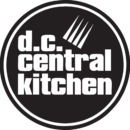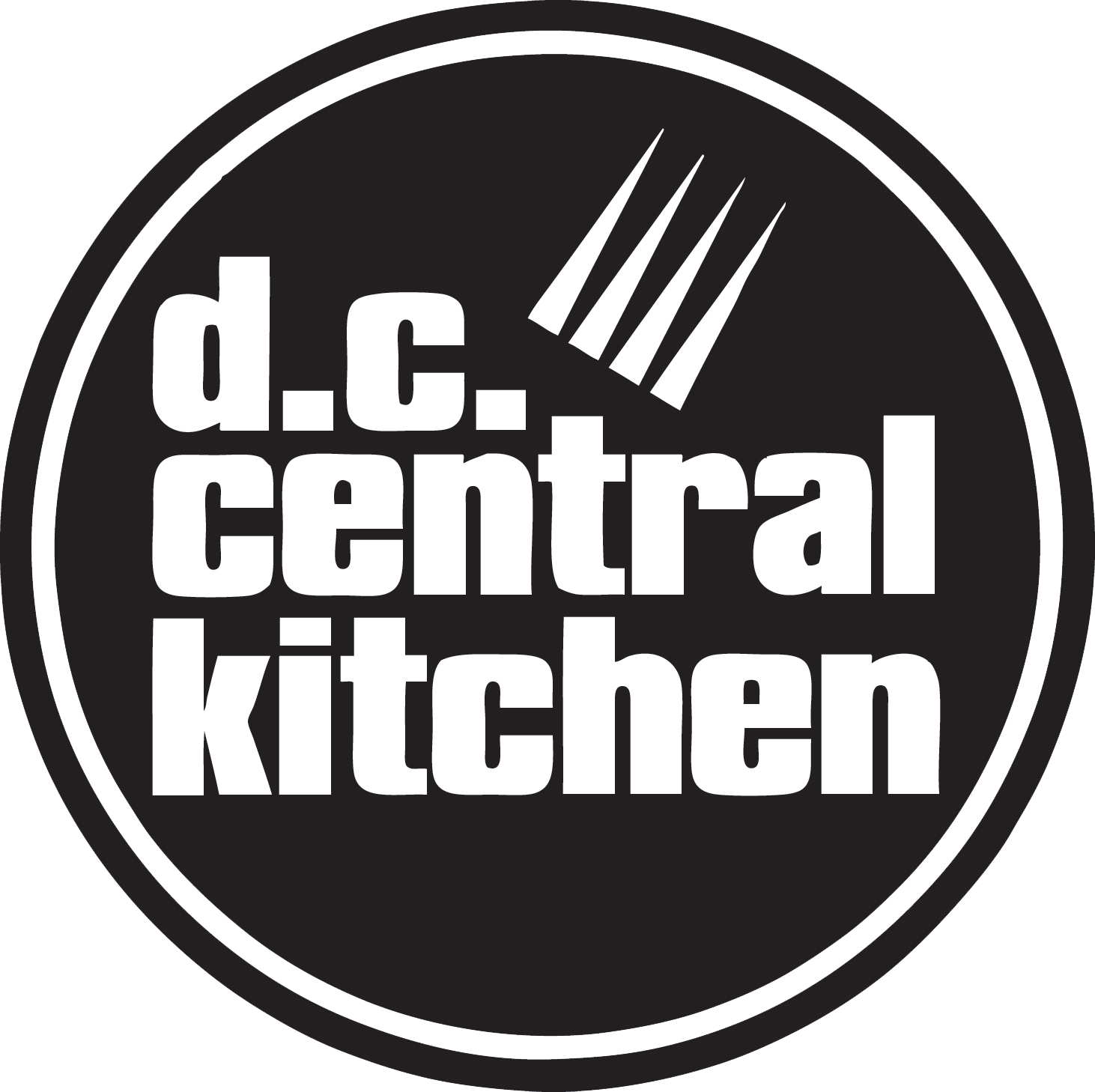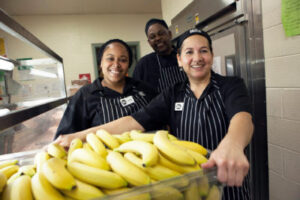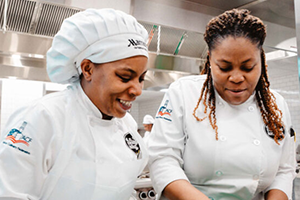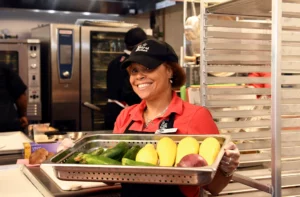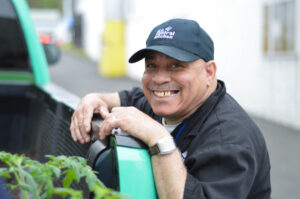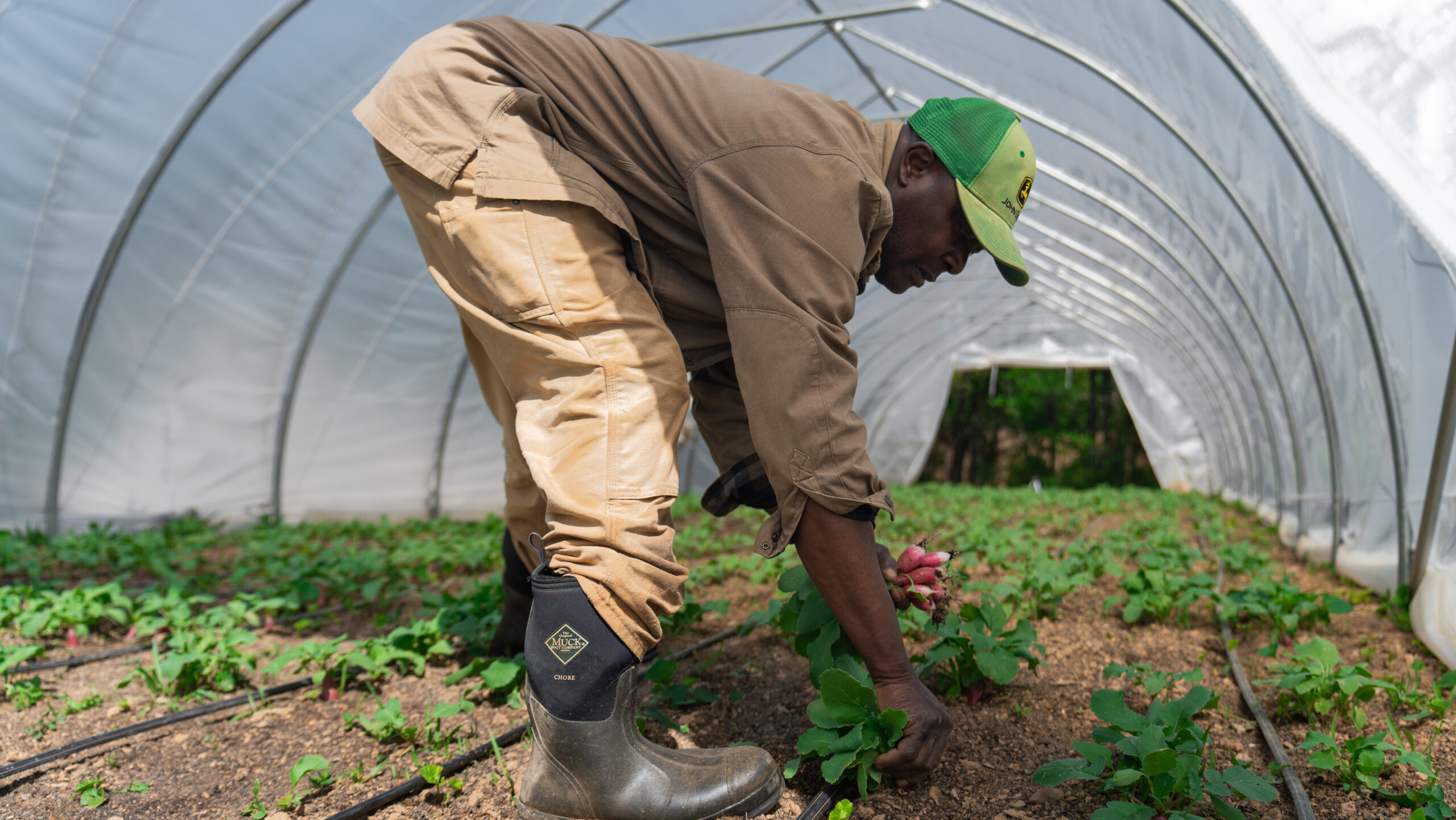In addition to providing fresh fruits and vegetables to schools, corner stores, and partner nonprofits throughout Washington, DC, our programs also support local farmers in all seasons. For us, this is a powerful scenario where everyone wins: our neighbors have access to high-quality nutrition right in their own communities, our Healthy Corners small business partners earn much-needed revenue, and area farmers expand to new, reliable markets.
This spring and summer, DC Central Kitchen is undertaking our Produce Push. We’re attempting to serve even more of our neighbors, purchasing $300,000 worth of fresh, healthy produce from those same local farms that will nourish nearly 30,000 food insecure members of our community.
According to Amy Bachman, DCCK’s Director of Procurement and Sustainability, purchasing from these local farms is an important aspect of our model. “Buying from local farms really hits a lot of different mission points,” says Amy. “We’re able to bring in a product that is really fresh, grown nearby so the product has been on fewer trucks transporting across the country and in different coolers and storage units. It’s coming straight either from the farm or through a [local] food hub. That way we’re able to get better, higher-quality, more nutrient-dense products [for] our meals.”
“From an even bigger perspective, it allows us to support the local food ecosystem of these small and regional farmers, the backbone of the American farming community. And we’re able to support [them] by giving these farms consistent contracts, so farmers can plan and know ‘We’re going to be able to sell kale and apples and strawberries and lettuce to DC Central Kitchen.’”
One of the farms we purchase from, Dodo Farms, embodies this winning proposition and has made Healthy Corners and DC Central Kitchen part of their American dream.
Married couple Niyi and Tope Fajingbesi are no strangers to the land. Farming since 2005, the couple recently moved from leased land in Montgomery County, Maryland to their own 10-acre piece of land in Howard County. But they didn’t begin farming here in the DMV.
The couple moved to the United States in 2017, and started Dodo Farms in 2018. For the 12 years before that, Niyi had been farming on 100 hectares of land in Nigeria. Tope is a Certified Public Accountant. Together, the two have all the know-how and passion required to make a farm work. They just needed the right partners.
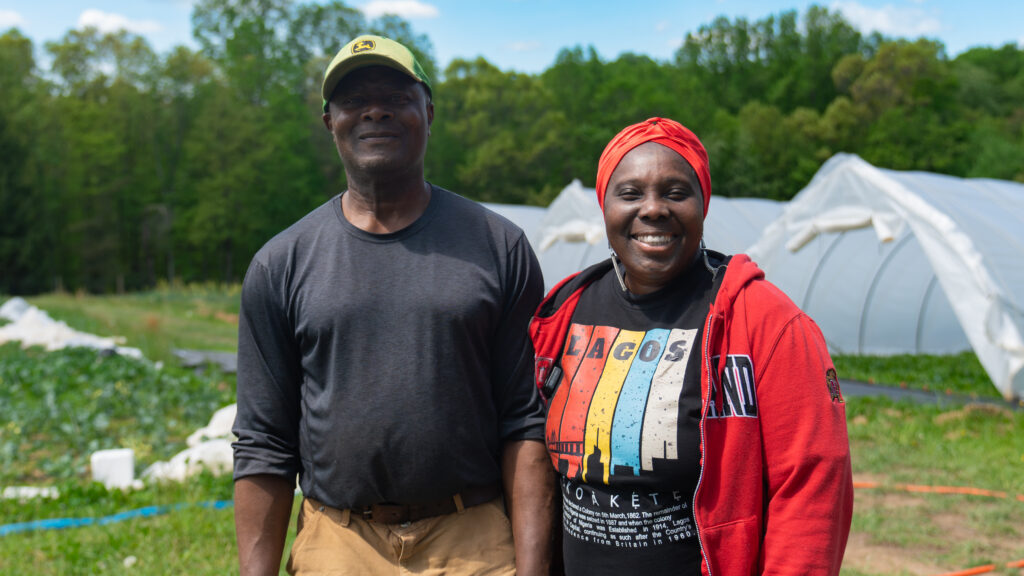
When asked why she decided to embark on a career that’s extremely difficult, both physically and financially, Tope informed us of her desire to educate. “Farming is the way for us to teach people about Lagos, about Nigeria, about Ghana, about Africa, and the origins of farming.”
Dodo recently launched farm classes and tours at their Mount Airy farm this spring. Interested individuals are encouraged to sign up to the Dodo Farms mailing list. Classes are nothing new for Tope, she’s also a former University of Maryland College of Agriculture and Natural Resources lecturer on agricultural business management.
Topi hopes visitors to their farm will “learn Black history in farming. Learn about regenerative agriculture as it’s practiced today in African countries like Nigeria, to learn about women in farming.”
According to the 2022 Census of Agriculture, the average age of an American farmer is 58.1 years old. Our food system undeniably needs a new generation of farmers, and Niyi and Tope are shaping their business around a knowledge of both an evolving customer base and a history they hold close.
“When my ancestors came to America, they came with seeds,” Tope explained. “But they hid the seeds in their hair. When my ancestors came to America, they came to farm but not willingly. They didn’t have a choice of what to grow. And even when slavery was abolished, they still did not have the power to charge the prices that were fair. I sincerely believed these ancestors prayed for a person like me who could charge what is fair for their produce, who owns their own land in this country. A person that does not need to hide their seeds.”
When we asked Tope why she made the choice to work with DC Central Kitchen, she spoke about community. “Beyond loving growing foods, we love being in community with people,” Tope told us. “There’s no better way to be in community than through food.”
While Dodo Farms has had a presence at local farmers’ markets for years, Tope is excited about reaching a new audience through Healthy Corners. “There are people who do not go to grocery stores. The place where they get everything is a corner store. Imagine if they had the option of collard greens grown with no chemicals, no pesticides, no fertilizers? I could die happy.”
From Lagos to Howard County, Niyi and Tope are living the American dream, a dream that consists of more dollars and cents. “What I like most isn’t [just] that we can fulfill our American dream through farming, but we can get to know people and have their support. It’s more than about making profit, it’s giving easier access to good food.”
While Dodo Farms is one of the newest farms in the DMV, we also work with one of the oldest, Miller Farms, which has been family owned and operated since 1879.
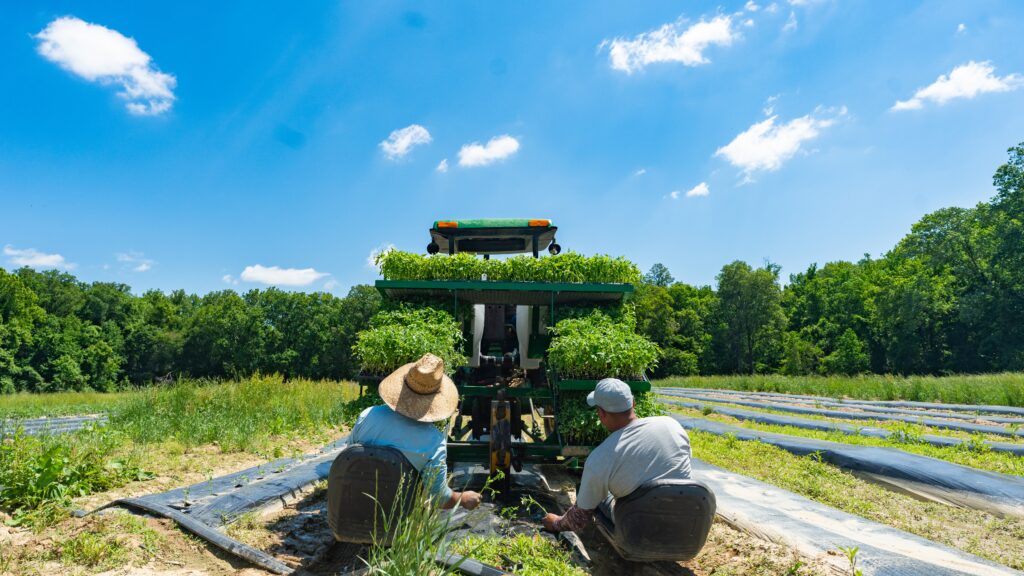
Brad Miller, a sixth-generation farmer, has been working at his Clinton, Maryland family farm as long as he can remember. His kids are starting to help out too and he’s “trying to keep this place a farm and keep it going for maybe the eighth and ninth generation.”
DCCK purchases greens, squash, tomatoes and more from Miller Farms. Their output is impressive, making them Prince George’s County’s largest vegetable producer. Some of our volunteers may also be familiar with the farm, as it’s one of our most popular gleaning locations, welcoming hundreds of summertime DCCK volunteers to pick surplus produce and bring it to our kitchen for use in our Community Meals.
While the farm is a large supplier for DMV area restaurants, Brad says it means a bit more when their fruits and vegetables are being used at DC Central Kitchen in meals for veterans, seniors, and schoolchildren. “It’s an honor,” he says. “A lot of people don’t cook and a lot of people aren’t in the position where they can sit down and meal prep and make a nice healthy meal for their family. When you’ve got DC Central Kitchen bridging that gap and providing for kids in schools or for homeless [people] who don’t have the ways or means to do it themselves, you give that experience to those folks that otherwise might not. It’s great.”
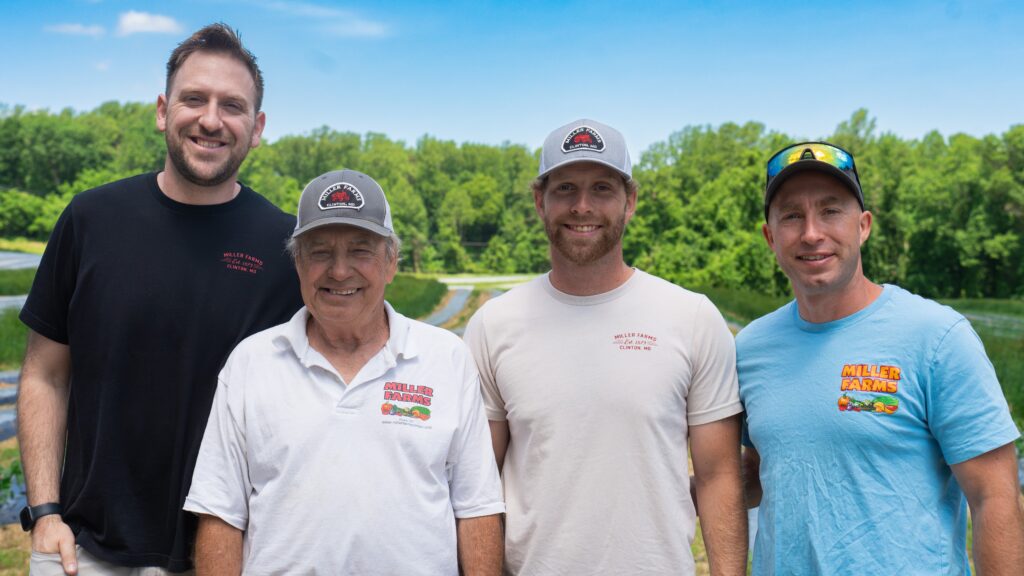
We’re able to provide those meals thanks to donations from our donors and partnerships with local farms. Like Brad told us, “This partnership is great because not only is the DC Central Kitchen supporting their community, and especially those most vulnerable, but it’s also helping to support a local family farm that wants to do the same.”
One of our longest– standing farm partners is Kilmer’s Farm Market out of Inwood, West Virginia. We purchase their grown-by-hand fruit, including pears, peaches, apples, strawberries, blueberries and more. Led by fourth-generation farmer Derek Kilmer, they deliver to DCCK twice a week, every week, with a truck full of fruit that’s then distributed’ to our school and community partners. They’re another example of a family farm that’s able to set plans for the year thanks to our contracts. “It’s a great partnership for us because [of the] consistency,” says DCCK’s Amy Bachman. “It’s a set price and great quality. And for the farmer, they know they’re going to get those orders and…have places to sell their product.
Alongside these dedicated family farmers, we’re nourishing our community and building it at the same time—and you can help us do even more of this powerful work right now. Please consider joining the Produce Push!
